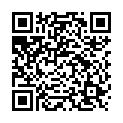|
|
|
| Module code: MAB_19_IP_5.05.MST |
|
|
2V+1P (3 hours per week) |
|
3 |
| Semester: 5 |
| Mandatory course: yes |
Language of instruction:
German |
Assessment:
Written exam 90 min.
[updated 05.11.2020]
|
MAB_19_IP_5.05.MST (P241-0278, P241-0279) Mechanical and Process Engineering, Bachelor, ASPO 01.10.2019
, semester 5, mandatory course, Specialization Industrial Production
PRI-PUQ (P223-0010) Production Informatics, Bachelor, SO 01.10.2023
, semester 5, mandatory course
PRI-PUQ (P223-0010) Production Informatics, Bachelor, SO 01.10.2026
, semester 5, mandatory course
|
45 class hours (= 33.75 clock hours) over a 15-week period.
The total student study time is 90 hours (equivalent to 3 ECTS credits).
There are therefore 56.25 hours available for class preparation and follow-up work and exam preparation.
|
Recommended prerequisites (modules):
MAB_19_A_2.01.CAD CAD 3D Modeling
MAB_19_A_2.02.TFL Manufacturing Process Technology (with Lab Course)
[updated 06.04.2020]
|
Recommended as prerequisite for:
|
Module coordinator:
Prof. Dr. Jürgen Griebsch |
Lecturer:
M.Eng. Marco Busse
[updated 06.04.2020]
|
Learning outcomes:
After successfully completing this module, students will be able to master tasks from the fields of technical investment and production planning using their knowledge about production management. They will be able to determine machine availability and machine utilization.
Students will be able to draw up key figure models and interpret them.
They will be familiar with common fields of application in industrial assembly and understand the different assembly principles.
Students will be familiar with the planning, construction and organization of assembly systems.
They will be familiar with the different feeding, transport, handling and gripping systems.
Students will be familiar with the basic principles of quality management and will be able to apply its methods and tools.
They will be able to analyze technical risks and problems.
[updated 05.11.2020]
|
Module content:
Introduction to production management
- Production systems
- Value stream design
- Machine availability
- Key figure systems
Assembly system technology:
- Industrial robots and handling technology
- Basic tasks of the assembly system technology
- Transport systems
- Assembly organization
Introduction to quality management
- Methods and tools for quality management
- Certification, auditing
Machine safety (CE conformity, machinery directive, hazard and risk analysis)
[updated 05.11.2020]
|
Teaching methods/Media:
Instruction with practically-oriented exercise segments, laboratory in small groups
[updated 05.11.2020]
|
Recommended or required reading:
Erlach, K.; Wertstromdesign - Der Weg zur schlanken Fabrik; Springer Verlag, 2010; ISBN: 978-3-540-89866-5
Dickmann, P.; Schlanker Materialfluss; Springer Verlag, 2015; ISBN 978-3-662-44869-4
Coenenberg, A.G., Fischer, T.M., Günther, T.; Kostenrechnung und Kostenanalyse; Schäffer-Poeschel, 2012; ISBN: 978-3-7910-3612-0
Haun, M.; Handbuch Robotik _ Programmieren und Einsatz intelligenter Roboter, Springer Verlag 2013; ISBN 978-3-642-39858-2
Hesse, S., Malisa, V.; Taschenbuch Robotik - Montage - Handhabung; Hanser Verlag, 2016; ISBN: 978-3-446-44365-5
Linß, G.; Qualitätsmanagement für Ingenieure; Hanser Verlag, 2018; ISBN: 978-3-446-44042-5
[updated 05.11.2020]
|

